Student Blog
Bryan
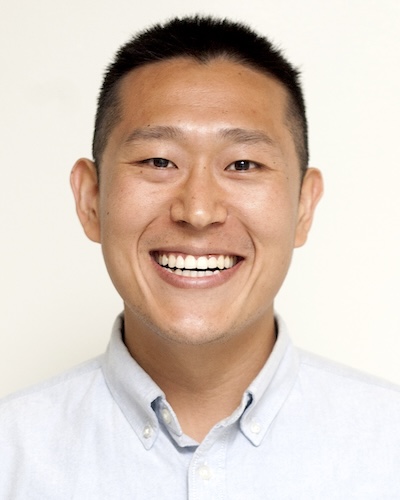
All I Do is Study for Adult Rehab ⟩
October 20, 2017, by Bryan
This semester feels like the culmination of my graduate school study skills. Speeding towards my own head-on collision with our midterm next week, I wanted to take a minute and share a few tips for getting the most out of the Adult Rehabilitation immersion course (though most of these can be applied to any course in our program).
- Talk to faculty. Whoever you receive as your instructor for the Adult Rehabilitation Immersion is a well of knowledge and wisdom. Talk to them and ask them to explain their reasoning and thought processes (i.e., ask Jane for more stories!). It is so helpful to paint a broader picture of how varied the specific injury or diagnoses might present itself in practice and the intervention/treatment ideas for each case scenario.
- Pay attention in lecture. While this sounds like common sense, lecture proved to be particularly important for me not necessarily in order to be exposed to the material for class, but to better understand how to use the information in our reading to treat patients. Building upon tip #1, the greatest thing about lecture is learning the faculty’s clinical reasoning and what observations they might expect from the patient when they hear the diagnosis of a C7 full spinal cord injury or stage 2 edema on the upper extremity. Understanding the information is just part of our job as clinicians, we must also know how to choose appropriate and attainable goals as well as treatment plan the “just right challenge” for our clients based upon a chart review and evaluation. Listening and asking the simple question, “what would you do and why would you do that?” helps prepare our own reasoning skills as students and future clinicians.
- Study consistently. I was less-than-half-probably-zero-percent-joking in my title because most of my time is actually devoted to threading through the dense material for the immersion. Amidst a jam-packed schedule, it has been an important habit to spend some time each day reviewing hip precautions and how to perform sensation testing because it takes a lot of practice and exposure to wrestle through and understand the “why” behind these procedures and information.
- Practice at fieldwork. This tip totally depends on where you are placed! I am currently at an inpatient rehabilitation unit and I have the opportunity to see most of what we talk about in class during my fieldwork day. But regardless of setting, make sure to ask questions and take initiative in practicing treatment planning and task analysis of ADLs with your CI and patients. I think something to keep in mind is to remember that you will be working with these same patients in Level 2 FW and post-graduation, so continuously be working on bedside manner and interpersonal communication.
I hope these tips help put some perspective on this immersion! Being dropped into all the information that comes with it. Study hard and enjoy the process!
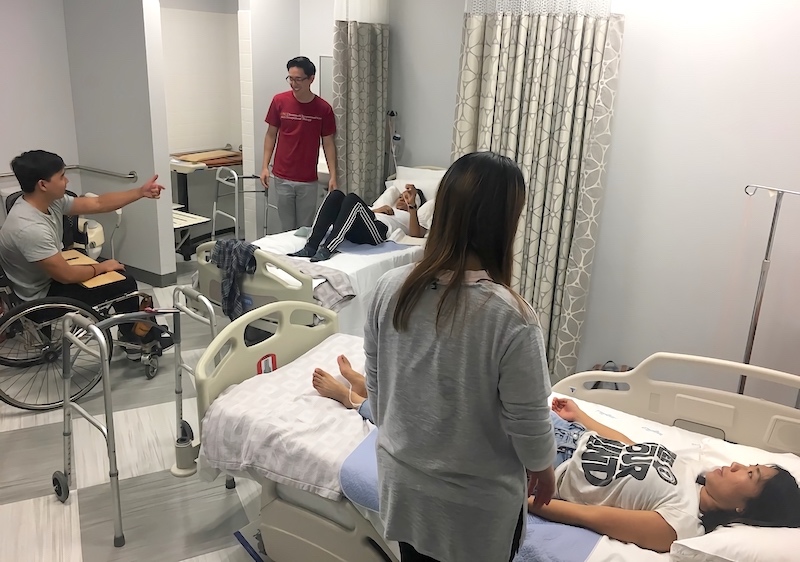
What better way to spend Thursday nights than having transfer parties?
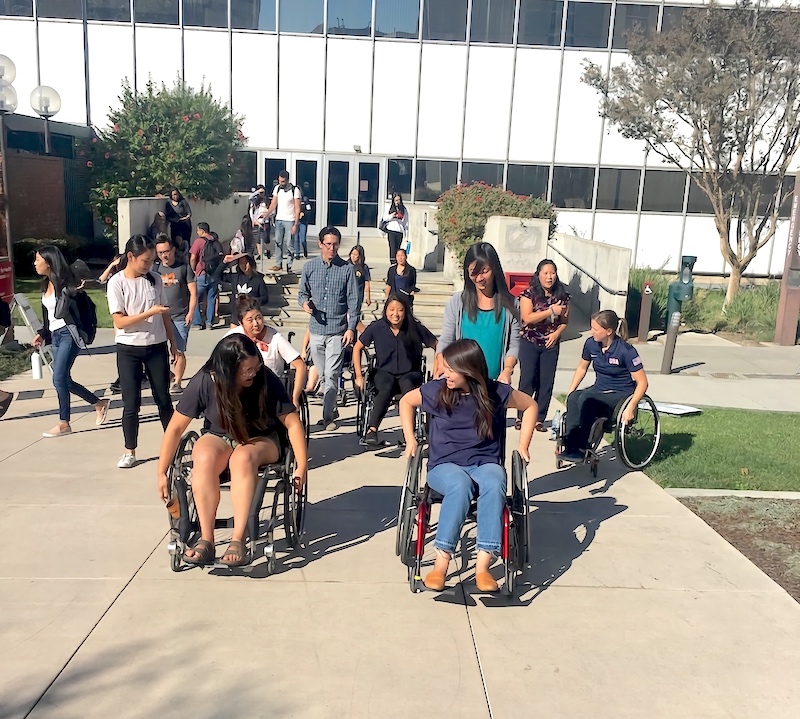
Learning how to maneuver wheelchairs!
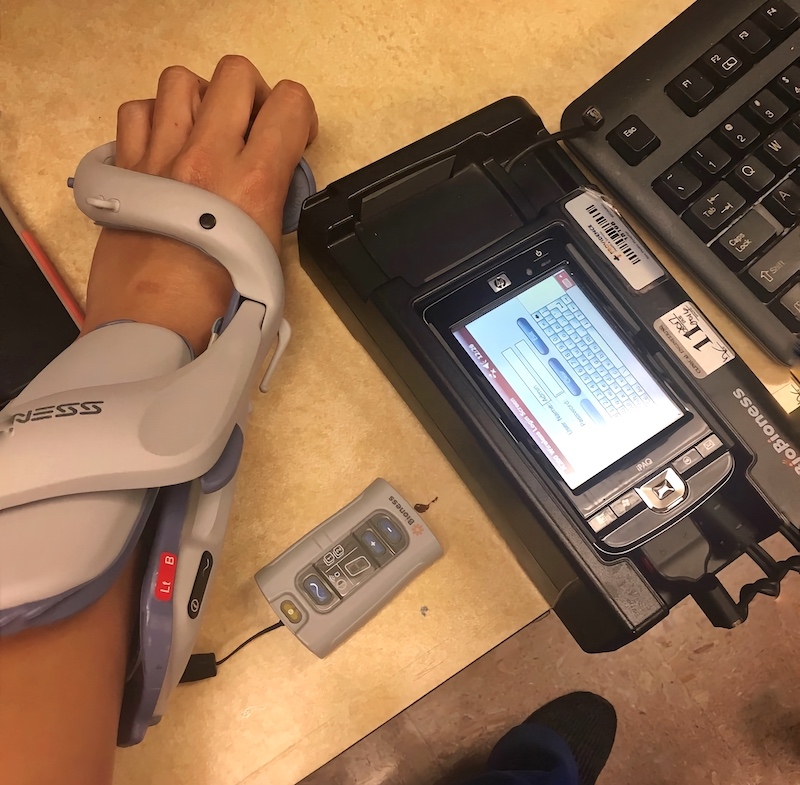
Trying out an estim at fieldwork
⋯

A Summer of Lessons From Master Wu ⟩
September 28, 2017, by Bryan
I never liked kids. Maybe it was growing up as an only child, or not liking loud noises or when things get too messy (sensory sensitivities . . .), I always distanced myself from having to interact with a child more than a quick smile or wave.
With that said, this past summer I spent my 12 weeks getting to know and treating children ages 4-11 at Stepping Stones Therapy Network, a pediatrics clinic in Seattle, WA. I took advantage of the out-of-area fieldwork request and took the opportunity to work in one of my favorite cities.
While I am planning to elaborate more on the process of securing an out-of-area level 2 placement and tips throughout the process in a future post, I wanted to share a few ways in which I grew as a clinician, student, and person after completing my Level 2 FW.
- I was so prepared! I cannot stress this enough. If you put in the work throughout the semester to learn the material and listen to faculty’s tips and tricks from their own practice, you will be ready for all that comes with Level 2 FW. The hardest part about Level 2 was not the clinical reasoning needed to observe and assess a client from the multitude of OT models of practice (Sensory Integration, Biomechanical, etc.), rather the ins and outs of learning how the clinic operates and becoming more proficient with administering and scoring assessments. One of the major encouragements my clinical instructors gave me was regarding my documentation skills which I directly attributed to the fact that I was taught the OT lens in class through the case studies we discussed and from faculty’s own stories and reflections.
- The learning does not stop. Even though I had no examinations or quizzes to study for, I spent each evening looking up treatment ideas for my clients the next day, documenting on the clients I saw that day, watching YouTube videos of BOT 2 administration for my evaluation later that week, reviewing Handwriting Without Tears, all the while trying to learn the names of Ninjago characters to better connect with the kids. Fieldwork is definitely full time!
- I learned to have a BLAST on the weekends! The good thing about fieldwork is that you do not have to feel the dull (sometimes sharp) pressure of an upcoming exam that impedes your ability to just hang out and chill. I went on a lot of fun hikes and really explored Seattle which only helped me focus and perform better when I was at fieldwork during the week! I loved having a routine throughout the week: working, gym, meal prep, treatment planning, reading, and enjoying the city and friends I had during the weekends.
- Make it a priority to build a relationship with your clinical instructors and coworkers. I guess this point was easy for me this summer because I was truly blessed with amazing CIs and coworkers who were not only skilled OTs, but also mindful instructors, carefully pacing my growth as a student and clinician. I wanted to be intentional with asking them about treatment ideas and career advice moving forward. What steps should I take to go into inpatient pediatrics? What do you like about working at a peds clinic? What certifications should I pursue?
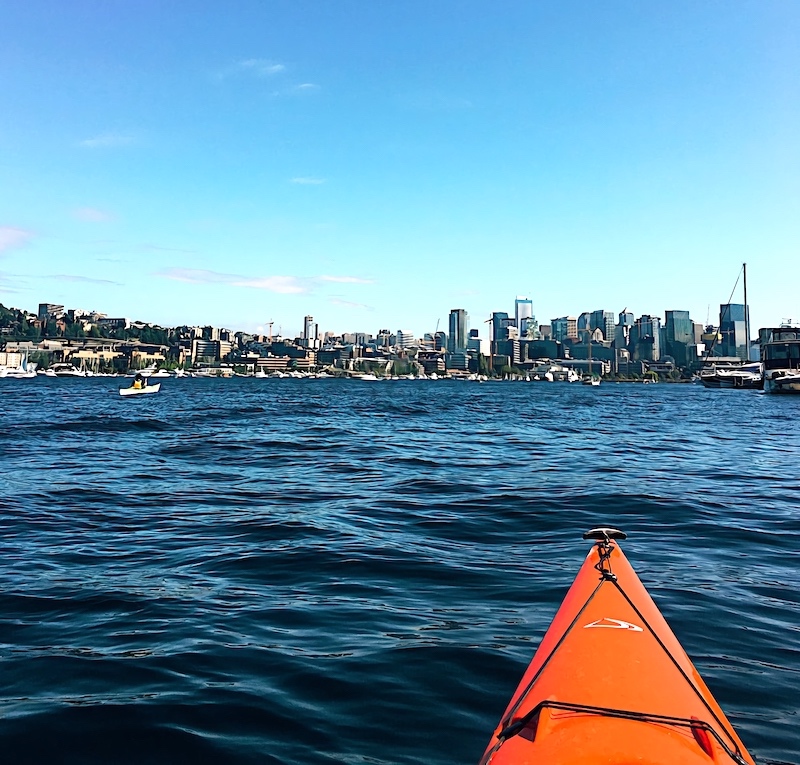
Kayaking Lake Union on Weekends

Hiked Heather Lake in June
Seattle summer weather is unreal . . .
⋯

Checking in at 13/26 ⟩
September 14, 2017, by Bryan
From being dropped into the deepest end of the pool with five days a week of Kinesiology and Neuroscience, grasping for air trying to stay afloat completing that final GATE/PICO for Quantitative, to finally gaining some tread as my feet are able to touch the ground near the end of FW Level 2 this summer, it feels like I have been swimming nonstop since June 2016. As I enter into my second year of the program, I definitely wanted some time to step out of the pool, reflect, and share a few lessons learned before starting my final lap (unless I do the OTD!).
- The faculty genuinely cares about your overall wellbeing. Coming from a large public school, I was much more familiar being another warm body in a 500-person lecture hall, often opting to just listen to a video lecture online. I was taken aback walking down the halls of CHP and being greeted by name from almost every faculty member. It was the first time in my educational career where professors spent time asking how we were all doing and how they could better communicate the lecture material to promote our understanding. With that said, it was the first time our midterm and final student feedback evaluations contributed to the future organization and direction of the courses. Lesson: If you have questions about anything from the material in lecture, what to pursue in the future, or even random advice about life, the faculty are always willing to listen and be there.
- I was listening to the Harvard Business Review podcast earlier this week and they were presenting a claim that the key factor setting professional athletes, top-performing CEOs, and entertainers apart from others was their mentality, not necessarily their skill level. HBR argued that everyone can achieve a certain skill level but after that comes the need for a particular mindset. I felt the truth of this podcast throughout my fieldwork experiences where it was my fear of failing that hindered me as opposed to an objective lack of knowledge. Whether I was walking the floors of an inpatient acute rehabilitation unit or working on Handwriting Without Tears at a private pediatrics clinic, I was always conscious of messing up. Zooming out a bit, I realized that I was actually completely prepared with the clinical mindset and know-how for every scenario I was placed into, I just needed to take a breath and use the knowledge I was taught. Lesson: Study hard and do not be scared to apply it!
- One of the most fun and interesting things I took part in last year was hanging out with the students who visited from South Korea through Global Initiatives. It was so cool to see how OT was practiced and taught in another country and how, in the end, we were united by our passion to simply help others. I learned how to describe OT in Korean to better communicate it to my parents. The most fun part was getting Facebook Friend Requests randomly throughout the semester from students who visited USC. Lesson: OT is so global, start exposing yourself to the profession on an international scale. (Maybe it will help you plan for the externship in the Spring!)
Rounding the first corner of Fall semester, it has been really nice to peek over my shoulder at the hurdles I have jumped so far while keeping my gaze fixed on the hurdles to come. But, maybe the biggest lesson to remember is to enjoy the race altogether.
⋯

2010 NBA Champions ⟩
September 1, 2017, by Bryan
The first question Joe (pseudonym) asked me was whether or not I thought the Los Angeles Lakers would win the NBA championship this year.
“Not a chance” I replied before noticing his purple and gold 2010 NBA CHAMPIONSHIPS LOS ANGELES LAKERS shirt.
“That’s whack man,” Joe said.
He did not talk to me the rest of my first day at my very first Level 1 Fieldwork.
My first Level 1 Fieldwork placement was at Mychal’s Learning Place in Hawthorne CA. Mychal’s is a clubhouse setting that offers day programs for adults with developmental disabilities, equipping them with self-care and job skills in order to foster independence. Mychal’s has an onsite washer and dryer, fully functional industrial kitchen, as well as other opportunities to teach and practice ADLs. There was, however, no OT onsite, so my colleagues who were also placed at Mychal’s and I had to be proactive to see how OT fit into this setting and population.
After a whirlwind first day of orientations and getting to know the facilities, I volunteered to assist with an awesome opportunity at Mychal’s, their Howl at the Moon café, which functions as a mobile coffee and pastry retailer. Howl has partnerships with MATTEL headquarters nearby and sets up shop twice a week to sell and serve coffee to the employees. The coolest part of Howl was that Mychal’s participants did almost everything from taking orders, making drinks (fancy lattes, cappuccinos, everything!) and even cooking the pastries. It was incredible to see how much Mychal’s believed in its participants. While I loved my experience there, throughout the semester I was still unsure of an OT’s role in this setting.
Joe and I were both assigned to Howl a couple weeks into fieldwork. We did not get the opportunity to converse since our first meeting and I was a little nervous to break the ice again.
“So . . . do you like basketball?” I asked before noticing the same purple and gold 2010 NBA CHAMPIONSHIP LOS ANGELES LAKERS shirt (PSA: Use your clinical observation skills people).
Joe nodded while preparing a pumpkin spice latte.
“Who do you think is going to win this year?” I asked.
Joe paused midway, while pouring the steamed milk and let out a sigh. “Probably the Warriors,” he responded.
I was confused at his overtly disappointed response and had to ask what was wrong.
It is amazing how a simple question diving deeper can help us understand our clients, and each other, better. In school they teach us two valuable concepts that are foundational to our OT practice: mindfulness and therapeutic use of self. While conceding my lack of mindfulness in noticing Joe’s apparent interests from his attire, I saw these two abstract concepts produce concrete fruit as Joe shared about his background and how the Lakers were an uplifting part of his life growing up. He looked up to Kobe (the GOAT) and Pau as heroes, sad to see them disband and the team rebuild. It was so interesting that Joe and I could connect on something as so seemingly simple as shared sports interests.
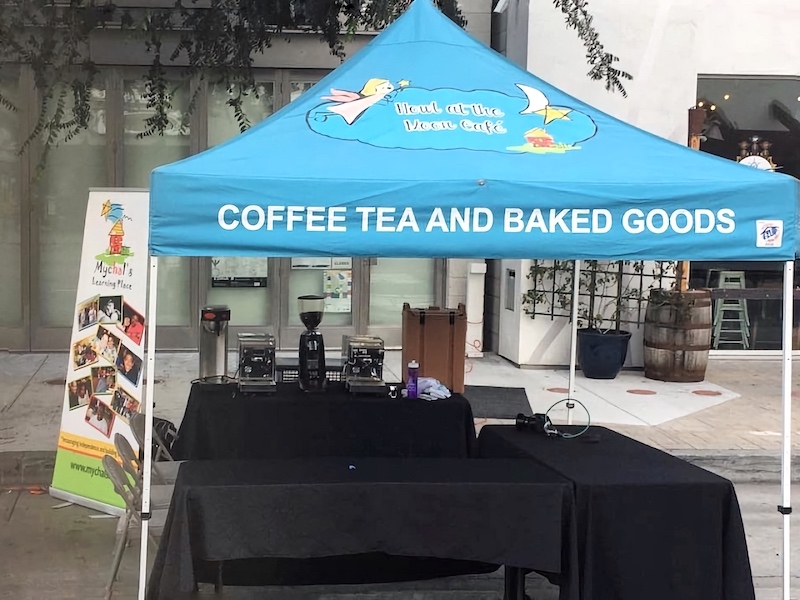
Howl at the Moon’s tent display
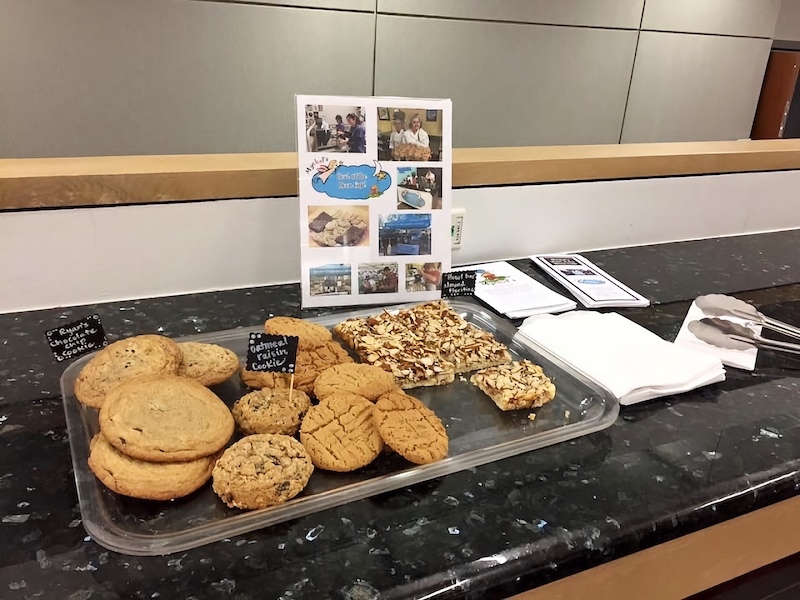
Howl at the Moon cookies
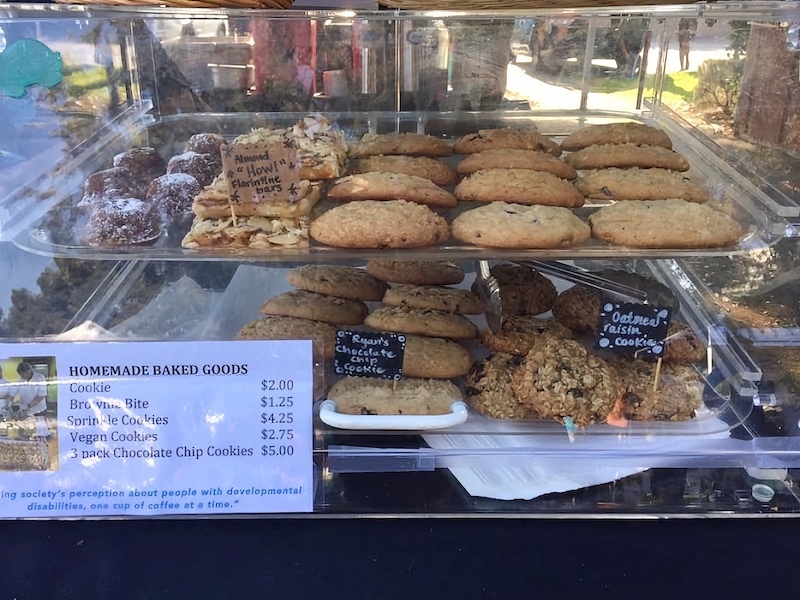
Handmade pastries by Mychal’s participants
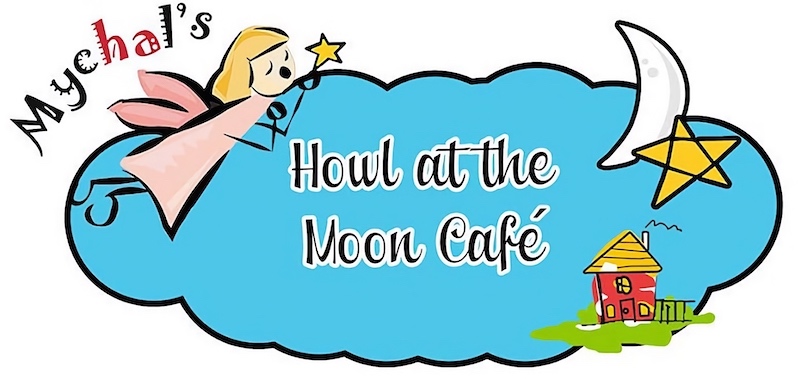
⋯

My Parents Still Don’t Know What OT Is ⟩
August 24, 2017, by Bryan
I began and completed undergrad without ever hearing of the words Occupational Therapy in combination. Growing up in an immigrant family, my parents always emphasized the importance of pursuing a career with a stable income, regardless of one’s passions. While I cannot thank them enough for working hard to establish a foundation for me to pursue everything I have thus far, I was at war because of my inability to suppress my love for the arts and more creative endeavors.
In order to appease both sides, my daily schedule at UCLA looked like: 8:00 am organic chemistry lecture, 9:30am - 4:00pm internship at movie production company, 5:00pm - 7:00pm physics lecture and discussion, 7:30pm - 8:30pm Improv Comedy class in Westwood, 9:00pm - 11:00pm CareExtenders hospital volunteering. My heart, as well as my schedule, was clearly divided. In the end, I knew I wanted to help others and was told throughout childhood that medicine was the best (and only) way to do so. On the flip-side, I loved storytelling and wanted to become a screenwriter, helping others smile, laugh, and cry as they saw chapters of their own journeys unfold onscreen.
The “creative” side won and I officially declared English as my major and dropped pre-med during my 3rd year. Whether it was trauma from scraping a single point on my physics midterm by writing -9.8 m/s^2 or from unlucky hospital shadowing experiences, I was ready to move away from health care into the romanticized world of marketing and advertising (#madmen).
After a few years working as a copywriter in a number of unique specialties (wedding vendor, mobile app, etc.), the long-suppressed existential questions of purpose began to brew anew. What do I really care about? What do I want to do for the next 40 years of my life? While I totally understand that our careers cannot be a complete (or adequate) representation of our values and passions, I always hoped to enter a vocation I really believed in. For me the pillars of a satisfying career seemed to be: caring for others, building relationships, and financial stability.
In a matter of beautiful fate, during this time my friends all started suggesting pursuing Occupational Therapy. I remember trying to explain this new career path to my parents in broken Korean . . . they still don’t know what it is (though interactions with the Korean international students from Global Initiatives helped a lot!) Honestly, there is so much more to share on how I have been consistently affirmed in my decision to dive into this evolving and exciting profession (more to come in future blogs hopefully), but I am just grateful take part in this opportunity to care for others in creative and meaningful ways.
⋯





